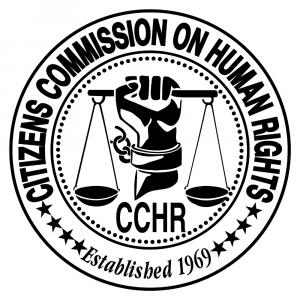Because antidepressants have questionable benefit and carry the risks of significant side effects, researchers have been exploring and finding scientific support for non-drug approaches to depression, including physical activity.
Research validates the effectiveness of trusted social connections, exercise, proper diet, enough sleep and other non-drug approaches for handling depression.
— Dr. Andreas Heissel, Social and Preventive Medicine, University of Potsdam
WASHINGTON, DC, US, December 20, 2023 /EINPresswire.com/ — Managing the holiday blues can be a challenge for those missing a loved one, dealing with burdensome family issues, or feeling overwhelmed by the demands of an increased level of holiday activity. Researchers studying depression have shed new light on approaches for turning things around that don’t involve prescription drugs.
Antidepressants, which may be prescribed for depression, have been found in recent research studies to have questionable benefit over dummy pills for adults, older people, or children. Antidepressants also carry the risk of adverse effects that include weight gain, nausea, insomnia, agitation, emotional blunting, sexual dysfunction, suicide [1] and violence. [2] On discontinuing the drugs, patients may experience withdrawal symptoms that can be severe. [3] Patients can discuss any concern about these risks with their prescriber.
The main rationale for prescribing newer generation antidepressants – to fix a supposed lack of serotonin or other brain chemical presumed to be the cause of depression – has been challenged by recent research which concluded that, after decades of brain research, there is still no scientific evidence to support the theory. [4]
Because the drugs have questionable benefit and carry the risks of significant side effects, researchers have been exploring and finding scientific support for non-drug approaches to depression.
Studies have indicated that exercise can significantly reduce depression symptoms in children and teens [5], and that even relatively small amounts of physical activity were associated with a substantially lower risk of depression in adults [6] and the elderly. [7]
The largest synthesis of data from research studies to date on the effect of exercise on depression found that exercise is as effective as antidepressant drugs or psychotherapy and should be offered as an evidence-based treatment option. “Exercise is efficacious in treating depression and depressive symptoms and should be offered as an evidence-based treatment option,” researchers wrote. [8]
Talking with a trusted friend or other social interaction is not just a good idea if you’re feeling low, but may be the best way to lower the risk of depression setting in, according to recent research. [9] Individuals with more supportive or more frequent social contact have fewer symptoms of depression, with face-to-face interaction more beneficial than by phone or video. [10]
Still other research points to the antidepressant value of getting enough sleep [11], especially for children [12], and of eating a healthy diet [13]. Attending religious services was found to decrease the risk of suicide in adults [14] and improve the mental well-being of teens [15]. Having a hobby was also associated with fewer depression symptoms and better mental health. [16]
The Citizens Commission on Human Rights (CCHR) recommends a complete physical examination with lab tests, nutritional and allergy screenings, and a review of all current medications to identify any physical causes of depression or other unwanted mental and emotional symptoms, which might otherwise be misdiagnosed and incorrectly treated as a psychiatric disorder.
WARNING: Anyone wishing to discontinue or change the dose of an antidepressant or other psychiatric drug is cautioned to do so only under the supervision of a physician because of potentially dangerous withdrawal symptoms.
The Citizens Commission on Human Rights was co-founded in 1969 by members of the Church of Scientology and the late psychiatrist and humanitarian Thomas Szasz, M.D., recognized by many academics as modern psychiatry’s most authoritative critic, to eradicate abuses and restore human rights and dignity to the field of mental health. CCHR has been instrumental in obtaining hundreds of laws against psychiatric abuse and violations of human rights worldwide.
The CCHR National Affairs Office in Washington, DC, has advocated for mental health rights and protections at the state and federal level. The CCHR traveling exhibit, which has toured major cities worldwide and educated people on the history to the present day of abusive and racist psychiatric practices, has been displayed in Washington, DC, at the Congressional Black Caucus Foundation Annual Legislative Conference and other locations.
[1] https://karger.com/pps/article/88/4/247/283160/newer-generation-antidepressants-and-suicide-risk
[2] https://pubmed.ncbi.nlm.nih.gov/27729596/
[3] https://www.sciencedirect.com/science/article/pii/S0306460318308347
[4] https://www.nature.com/articles/s41380-022-01661-0
[5] https://pubmed.ncbi.nlm.nih.gov/36595284/
[6] https://jamanetwork.com/journals/jamapsychiatry/fullarticle/2790780
[7] https://jamanetwork.com/journals/jamanetworkopen/fullarticle/2807113
[8] https://pubmed.ncbi.nlm.nih.gov/36731907
[9] https://ajp.psychiatryonline.org/doi/10.1176/appi.ajp.2020.19111158
[10] https://www.cambridge.org/core/journals/psychological-medicine/article/social-relationships-and-depression-during-the-covid19-lockdown-longitudinal-analysis-of-the-covid19-social-study/C4EC01109B848D2306416BFDC33787C5
[11] https://www.ncbi.nlm.nih.gov/pmc/articles/PMC3108260/
[12] https://pubmed.ncbi.nlm.nih.gov/35994289/
[13] https://pubmed.ncbi.nlm.nih.gov/28431261/
[14] https://jamanetwork.com/journals/jamapsychiatry/article-abstract/2529149
[15] https://bmjopen.bmj.com/content/13/6/e071999
[16] https://www.nature.com/articles/s41591-023-02506-1
Anne Goedeke
Citizens Commission on Human Rights, National Affairs Office
+1 202-349-9267
email us here
Visit us on social media:
Facebook
CCHR Antidepressant Warning
![]()
Originally published at https://www.einpresswire.com/article/676214967/holiday-blues-research-finds-alternatives-that-avoid-questionable-benefit-and-known-side-effects-of-antidepressants





